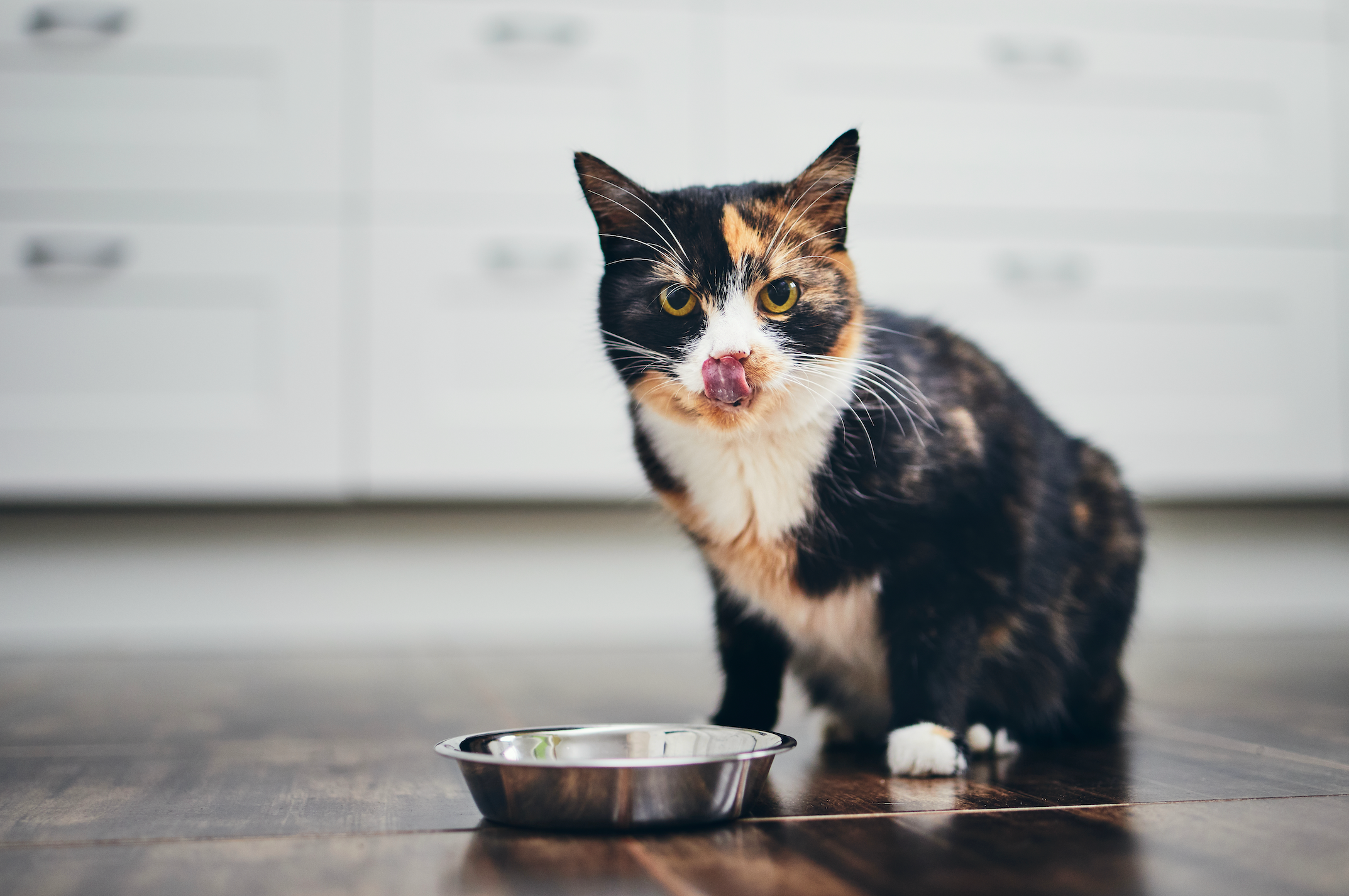Your cart is empty. Let's fix that!


Has your cat started shedding pounds? Sudden weight loss in cats can be a sign of serious medical conditions. We’ve got the details on cat weight loss causes and how to get your cat back to 100%.
We’re all familiar with the struggle of how to keep our couch potato cats trim (here’s looking at you, chonky cat parents), but what should you do when your cat unexpectedly loses weight? If you recently switched to a cat weight loss food for your lazy indoor kitty, that might be good news—but if your cat is suddenly losing weight, it’s time to investigate.
Many of the causes for cat weight loss might point toward a medical condition. Even if your cat is just a picky eater and not digging their new food, it’s important to get your cat back to a healthy weight. If their food consumption is low for a stretch of time, cats can develop hepatic lipidosis—a life-threatening medical issue—on top of any other underlying concerns that could be causing their reduced appetite.
You should also pay attention to sudden weight loss in cats who are still eating normally. That can indicate a host of other conditions that could be taxing their digestive systems. Let’s go over some of the most common cat weight loss causes to help you understand what might be causing your cat’s woes.
If you notice that your cat has stopped eating, the first thing to consider is if there have been any recent changes that could be messing up your cat’s mojo. Think about all the reasons a cat might refuse their food and see if you can alleviate your cat’s distress before you worry that it’s something more serious.
Nobody wants to chow down on crunchy chips when they have a toothache, and cats are no exception. Tooth and gum issues including gum disease, ulcers, and fractured teeth can cause your cat to avoid their food bowl. Watch out for bad breath, drooling, bleeding from the mouth, and your cat starting to favor soft foods.
The idea of worms hitching a ride in your cat’s intestines is never pleasant, but thankfully it’s easy to treat and even easier to prevent with regular pest control treatment. Internal parasites can cause vomiting, diarrhea, bloating, and subsequent weight loss. This is common among outdoor cats who like to hunt, but indoor cats can be affected as well.
If your cat is vomiting or having irregular poops, a gastrointestinal problem may be the cause. Any problem that affects your cat’s digestion can affect their ability to absorb all the nutrients they need—leading to weight loss. Many things can affect the GI tract, including food allergies and inflammatory bowel disease.
Just like in humans, diabetes in cats affects their ability to produce or use insulin. This can cause your cat to lose or gain weight as well as affecting their appetite, drinking, urination, and energy levels. Sweet-smelling breath is another tell-tale sign of a diabetic cat.
This condition causes the thyroid gland to overproduce thyroid hormone, which kicks your cat’s metabolism into high gear. They will most likely be extremely hungry and thirsty, but even if your cat is eating more, they’ll still be losing weight. Hyperthyroidism can also cause digestive upset and greasy fur.
Various organ failures are a common issue for senior cats as they age. Symptoms vary depending on the affected organ, but most common organ issues like kidney disease can be detected with a simple blood test at the vet.
Unfortunately, weight loss or loss of appetite are common symptoms of a variety of cancers in cats. Watch out for accompanying lethargy, unexplained pain, and your cat hiding more than usual. Cancers are especially common in older cats.
If you notice any unexpected weight loss in your cat, call your vet. Even if your cat is losing weight but acting normal, it’s worth getting them checked out! Cats are notorious for hiding their symptoms even when they’re suffering.
Your vet can run all the necessary tests to diagnose medical issues and help with emotional issues as well. Weight loss in cats with normal blood work might just come down to something that’s changed in the home, but your vet can help you think of issues that might never occur to you on your own, like your cat’s food being too close to their litter box (yeah, that’s a thing).
Those of you with senior cats might be wondering if cats lose weight as they age. Metabolism and appetite can certainly change as cats age, but those changes can be associated with sneaky medical conditions like organ failure or cancer.
Whether your older cat is losing weight but still eating or avoiding their food bowl entirely, it’s worth talking to your vet. If it’s not a medical issue, you can feed an older cat that is losing weight a more calorie-rich and tempting wet food to help them get their baby fat back.
With your vet on your side, you and your cat can get back to building their body and enjoying life to the fullest!